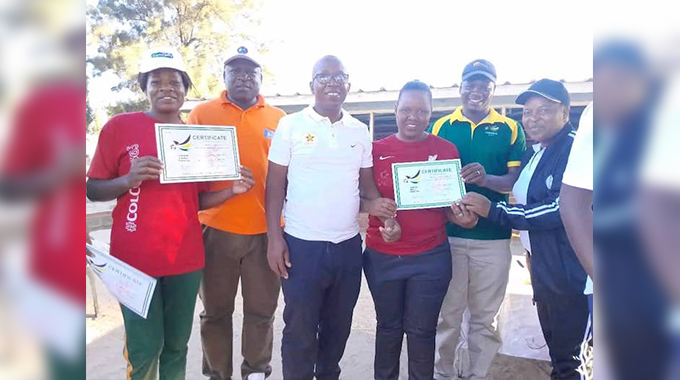Rich pickings from waste collection

Thandeka Moyo-Ndlovu, Senior Reporter
MS Josephine Nkiwane of Richmond suburb in Bulawayo had lost all hope after separating from her husband when she made her first visit to Richmond Landfill Sanitary Site popularly known as Ngozi Mine in 2003.
To her, it was simply a visit to ascertain the possibility of her venturing into waste picking, but it marked the beginning of a great journey which has sustained her family for the past 20 years.

Josephine Nkiwane-Waster picker at Ngozi Mine.
On average, Ms Nkiwane makes US$150 monthly from picking up empty water bottles and cans from Ngozi Mine, and this has helped her raise three children single-handedly.
Waste-pickers are critical players in the management and waste circular economies and in Bulawayo, as they have helped clear tonnes of waste which is recycled.

Waste generation has increased massively around the world in recent decades. According to the World Bank, the world generates 2,01 billion tonnes of municipal solid waste annually, with at least 33 percent of that— extremely conservatively — not managed in an environmentally safe manner. Experts on environmental issues have warned that by 2050, worldwide municipal solid waste generation is expected to have increased by roughly 70 percent to 3,4 billion metric tonnes. Waste collection is a critical step in managing waste. As Bulawayo continues to writhe under the burden of waste management, Ms Nkiwane has turned her craft into a way to relieve the city of some of its waste burden.
The practice also helps a number of unemployed residents fend for their families.
Ms Nkiwane is among the more than 300 women who spend the greater part of their productive days going through waste at Ngozi Mine which they sell to recyclers for a fee.
Chronicle caught up with Ms Nkiwane and she told the news crew that her day starts at 4AM since there is competition from her male counterparts, some of whom sometimes stage night vigils as Bulawayo City Council (BCC) refuse trucks deliver waste during the night.

“I have been a waste picker for the past 20 years and what people often see as waste is actually gold to me. I cannot even explain how this trade delivered me from a lot of fears, and worries after my husband left me,” she said.
“I have managed to raise my children who are now adults, and also took them to school through earnings from this dump site.”
Ms Nkiwane said she makes $50 per kg of empty water or pet bottles that she picks.

“I am my own manager and do not have to come here daily as I have mastered the trade so well. Over the past year, I have managed to set up other small businesses to raise more money,” she said.
“On days when I am not picking bottles, I sell blankets, clothes, and food to villagers in Lupane and other surrounding farms.”
Ms Nkiwane said she used to work as a maid before she was introduced to waste picking.

She also has a market for sacks, door handles and steel rubbles which give her more money.
“Our buyers are from Bulawayo while others are Harare companies and individuals who offer us more.
The trade also comes with some challenges as one has to be vigilant in order to make a tangible income,” said Ms Nkiwane.
“We have young men who compete for the same bottles hence the need for one to be alert as there is a risk of losing your merchandise to thieves who also come to this dump.”

Ms Nkiwane, a mother of eight, said her children now have an appreciation of what she does and they sometimes help her package her bottles.
“When I started, I was ashamed and I would shy away from known buyers as I felt that they looked down on this profession. However, with time I realised there was nothing to be ashamed of as waste picking gave me enough money to fend my family,” she said.
Ms Nkiwane said her neighbours now know her as a waste picker and are always keen to keep empty bottles for her.
“I live near a lodge and am happy because they allow me to collect their empty bottles. As we continue celebrating our wins as women, I encourage fellow women out there to just get their hands dirty and use available opportunities to make money,” she said.
“We now have over 300 women who spend their day picking waste and surely the future is bright. Our environment can now smile because we have people like us trying to ease off the city burden by picking the waste off its shoulders.”
@thamamoe












Comments